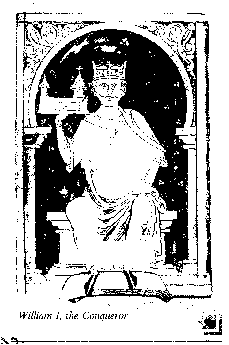
16
"feudalism", first employed during the 12th century. The term was used in both narrow and broad sense.
Narrowly it was related to military (knightly) service as a condition of tenure of land. Broadly it was related
to the tenure of land itself, obligation and dependence, as expressed in the term "vassalage". The first
relationship focuses on warfare in an age of violence, the second on the use as well as the tenure of land in an
age when land was the key to society.
All land in the country belonged to the Crown. The king was the greatest landowner in the country and he
parcelled out (gave away) the land to the great landowners who were his tenants-in-chief (barons). The barons
held their land as a gift, in return for specified services to the Crown. When barons parceled out their land, they
also required knightly services from their tenants. During the reign of William 1170 barons had in their service
about 4000 knights who were distinguishable as a social group.
The two social groups were opposed to "the poor men": lords themselves cultivated only a third or two fifths
of the arable land in use. The rest was cultivated by various kinds of "peasants" (a controversial term not in use
at that time): villeins (41%), cottagers (32%), free holders (14%) the group holding (20% of the land) and
serfs (10%) – the group with no land at all. At the time of the Domesday Book, the basic distinction was,
however, that all men are either free (free holders) or serfs.
In the 13th century King John (Lackland) (1199-1216) replaced military service of his tenants-in-chief by
payments, known as "shield money".
In rural England lords lived in manors which were in their own estates. The peasants, free holders and others
lived in villages and hamlets.
The Domesday Book was designed for fiscal purposes to increase and protect the King's revenue.
The full implications of the social, political and cultural changes following the Norman Conquest took time
to work themselves out.
They were: a political unification of the country and the centralization of government - a strong royal
government, feudal interdependence; the supreme power of the King over all his vassals; the
establishment of the feudal hierarchy, a further development of the relationship between the King and
the barons, sometimes stormy, sometimes cohesive, an emergence of English common law (from
precedent to precedent), the making of Parliament.
The latter two were the most obvious phenomena if we investigate (consider) the historical events
chronologically and examine the sequence of monarchs.

